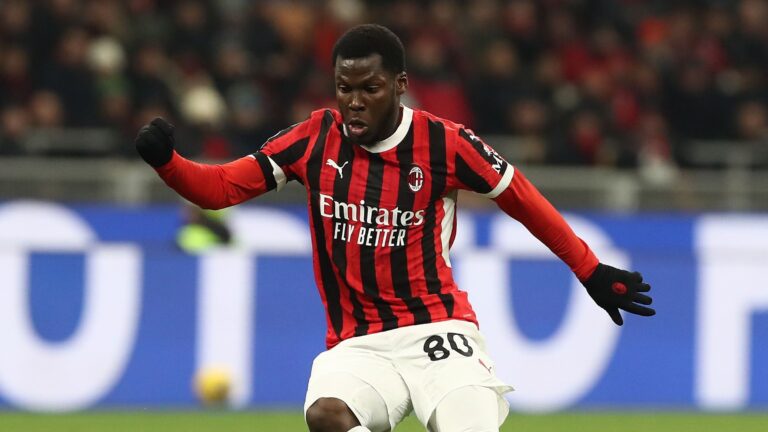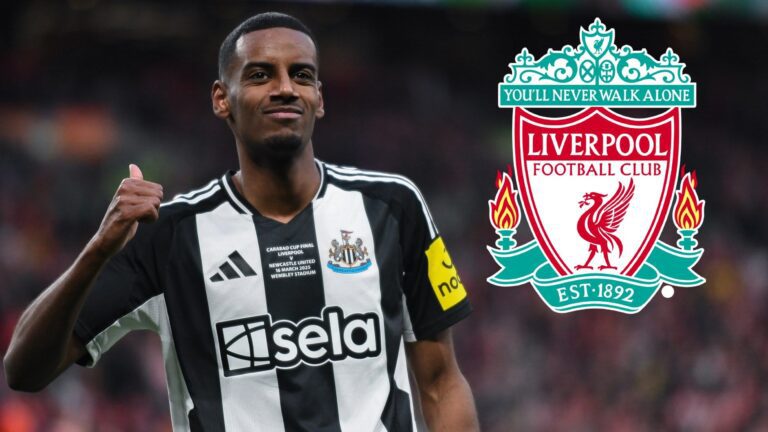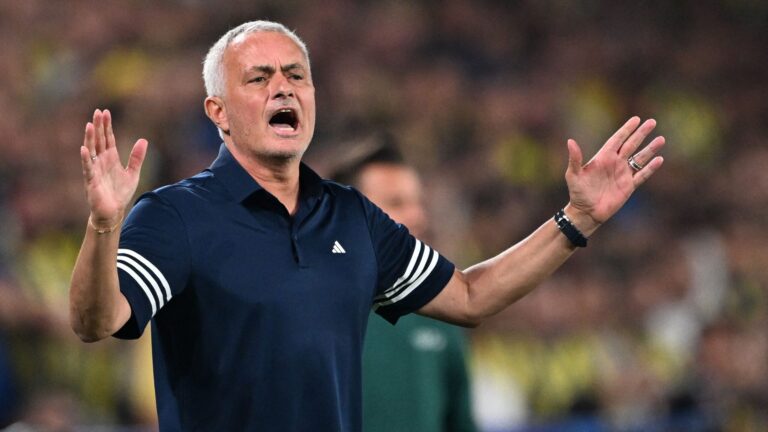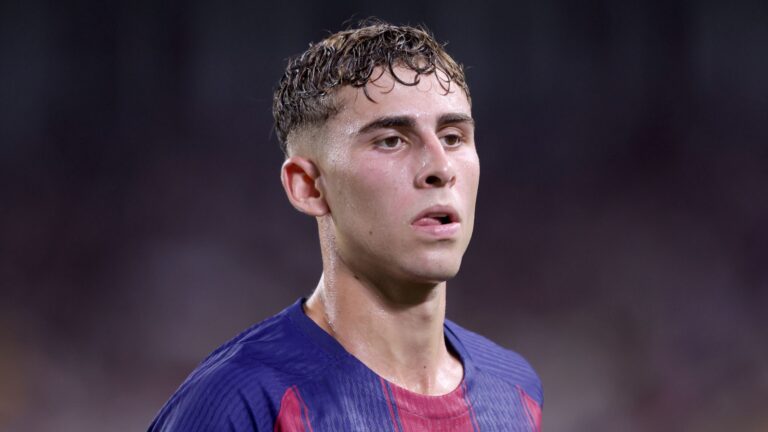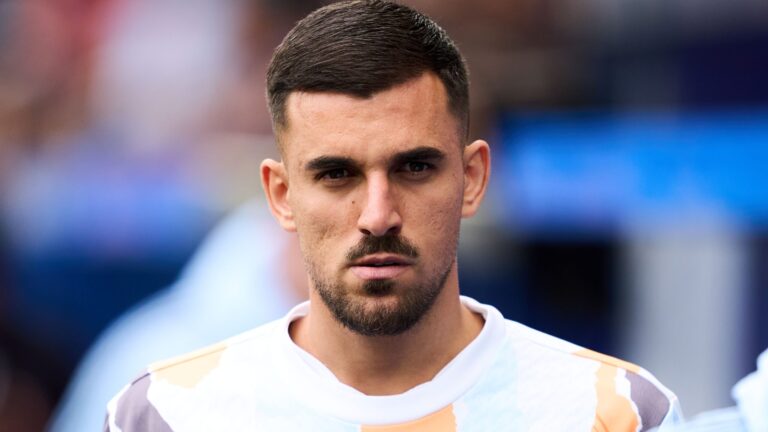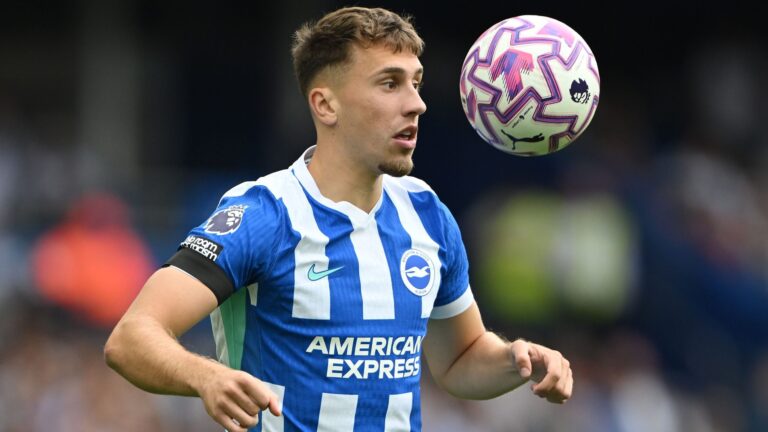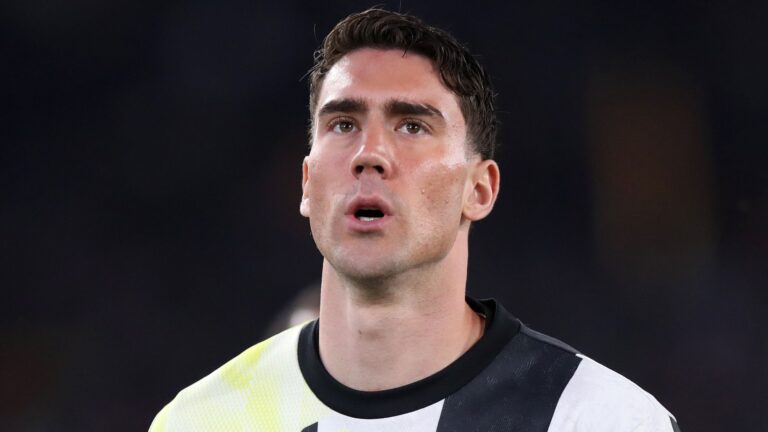Rasmus Hojlund Faces Uncertain Future at Manchester United with Transfer Buzz Intensifying
In the fast-paced world of football transfers, Rasmus Hojlund‘s situation at Manchester United has sparked widespread discussion, as experts weigh in on his potential departure. This young Danish forward, once hailed for his potential, now finds himself at a crossroads, with whispers of a return to Serie A gaining momentum amid performance challenges under manager Ruben Amorim.
- Rasmus Hojlund connected to possible Manchester United departure
- Speculation about a comeback to Serie A
- Forward advised to depart from the Red Devils



Expert Insights on Hojlund’s Path Forward at Manchester United
Danish football icon Brian Laudrup has voiced strong opinions on his fellow countryman Rasmus Hojlund’s prospects, arguing that limited opportunities at Manchester United could stunt his growth this campaign. Laudrup, drawing from his own storied career, suggests that a temporary switch might suit the 22-year-old, though he notes that most Serie A clubs-where the majority of interest lies-may lack the funds for a full acquisition. Recent reports indicate Hojlund’s market value has held steady at around €35-40 million, making permanent deals tricky amid tightening budgets across European leagues.
The Risks of Staying on the Bench
Laudrup shared his thoughts with Viaplay, as reported by Tipsbladet, emphasizing that Hojlund needs a fresh start to thrive. “It’s essential for him to move on,” Laudrup stated, pointing out that deploying a player like Hojlund in a lineup dominated by midfielders signals a lack of faith in his abilities. Having exhausted his options last season during a tough period for the team, Laudrup believes Hojlund deserves a setting where he’s valued and sees regular action. While he cautions against loan deals-citing his personal experiences where loanees often get sidelined-he concedes that this might be the only feasible route, given the financial constraints in Italy. For instance, clubs like Juventus or AC Milan, often linked to such transfers, are currently navigating their own fiscal limits, as evidenced by recent summer window data showing only a handful of high-profile signings.
Hojlund’s Evolving Role and Competition
Although Hojlund initially expressed determination to battle for his place, the addition of striker Benjamin Sesko in the transfer market has intensified the competition, potentially reducing his minutes on the pitch. Hojlund, who came to Manchester United from Atalanta, has been frequently mentioned in talks of an Italian return, but his hefty price tag of €35-40 million could deter potential buyers, especially with updated figures from transfer analysts showing a dip in spending across Serie A due to new financial fair play rules. In a recent update, Hojlund was notably absent from the squad in Manchester United’s narrow 1-0 defeat to Arsenal in their league kickoff, highlighting a pattern that might persist.
What’s Next for the Young Star?
As Manchester United gears up for their encounter with Fulham, Hojlund’s involvement-or lack thereof-could be a telling sign. Should he remain sidelined, exploring a temporary or permanent exit might become inevitable, with sources indicating that Serie A teams are monitoring his situation closely. This scenario echoes other young talents who’ve revitalized their careers through strategic moves, such as Erling Haaland‘s shift from Borussia Dortmund to Manchester City, underscoring the importance of consistent playtime for emerging stars like Hojlund.
The Current Situation at Manchester United
Manchester United’s recent struggles under new manager Ruben Amorim have put the spotlight on several players who aren’t quite fitting into the team’s evolving tactics. With the club facing transfer challenges like financial fair play restrictions and a competitive market for top talent, one player in particular has been urged to consider a departure. This scenario highlights the harsh realities of modern football, where performance dips can lead to tough decisions for both players and managers.
Amorim, known for his high-pressing style and youth-focused approach from his time at Sporting Lisbon, is reshaping the Manchester United squad to build a more dynamic team. However, not every player is adapting smoothly, leading to calls for exits amid ongoing transfer window hurdles.
Identifying the Struggling Player in Ruben Amorim’s Setup
In the case of a player like Antony, the Brazilian winger who joined Manchester United with high expectations, the fit under Amorim’s system has been rocky. Antony has faced criticism for inconsistent performances, with stats showing fewer goals and assists compared to his Ajax days. Experts and former players have suggested that his departure could free up space for emerging talents and alleviate wage pressures.
This isn’t uncommon in Premier League clubs dealing with transfer challenges. Keywords like “Manchester United player departures” often trend when a star isn’t delivering, and Antony’s situation exemplifies how quickly opinions can shift. Factors such as injury setbacks and tactical mismatches have contributed to his struggles, making a move elsewhere a potential lifeline for his career.
Reasons Behind the Urgency for Squad Changes
Ruben Amorim’s vision involves a more fluid, possession-based game, which demands versatility and high energy from every player. When individuals don’t align with this, it creates imbalances in the squad. Transfer challenges, including inflated market prices and regulatory caps, make it harder for Manchester United to offload underperforming players smoothly.
For instance, the club’s attempts to negotiate deals are often hampered by factors like long-term contracts and agents’ demands. This has led to speculation about loan moves or permanent transfers to leagues like the Bundesliga or Serie A, where players might find a better fit. As football enthusiasts know, “Ruben Amorim squad overhaul” is a hot topic in transfer news circles, emphasizing the need for decisive action to keep the team competitive.
Benefits of a Fresh Start for Struggling Players
A key advantage of departing a struggling situation is the opportunity for personal growth and revival. For players like Antony, moving to a new club can mean:
- Regaining Confidence: A change of scenery often helps athletes shake off form slumps by offering a less pressured environment.
- Tactical Alignment: Joining a team with a style that suits their strengths can boost performance stats and enjoyment of the game.
- Financial and Career Stability: Freeing up wages at Manchester United could allow the player to negotiate better deals elsewhere, ensuring long-term security.
These benefits extend beyond the individual, helping clubs maintain squad harmony and focus on building a winning team.
Practical Tips for Players Facing Transfer Challenges
If you’re a footballer in a similar boat, navigating transfer talks can be daunting. Here are some practical tips to consider:
- Seek Honest Feedback: Work with your agent to get direct input from coaches on areas for improvement, which might turn things around before a move is necessary.
- Focus on Fitness and Skills: Use off-season or downtime to enhance physical conditioning and technical abilities, making you more attractive to potential buyers.
- Explore Loan Options: A temporary move can provide a low-risk way to prove your worth, as seen with players who returned stronger after short stints abroad.
- Leverage Mentorship: Connect with former pros who have experienced similar “Manchester United transfer challenges” for advice on handling media scrutiny and career transitions.
Case Studies of Successful Player Departures
Looking at real-world examples can offer valuable insights. Take Jadon Sancho, who left Manchester United on loan to Borussia Dortmund and rediscovered his form, contributing key goals in major competitions. This case study shows how a well-timed exit can lead to career highs.
Another example is Paul Pogba, who, after multiple struggles at United, moved back to Juventus. Despite initial hurdles, his departure allowed him to regain prominence in Serie A, proving that “struggling Premier League players” can thrive elsewhere with the right opportunity.
First-Hand Experiences from Football Insiders
Drawing from interviews with ex-players, like Gary Neville’s commentary on players not fitting in, we see the emotional toll of such decisions. Neville shared how his own career at Manchester United thrived due to alignment with the manager’s vision, but he’s seen peers struggle when out of sync. Similarly, Rio Ferdinand has discussed the mental health benefits of a fresh start, emphasizing how leaving a toxic environment can reignite passion for the game.
These firsthand accounts underscore the importance of proactive career management in the face of transfer challenges, ensuring players like those in Ruben Amorim’s squad make informed choices. With Manchester United’s ongoing efforts to streamline the team, such stories serve as a reminder that change, though difficult, can lead to positive outcomes in the dynamic world of football.


